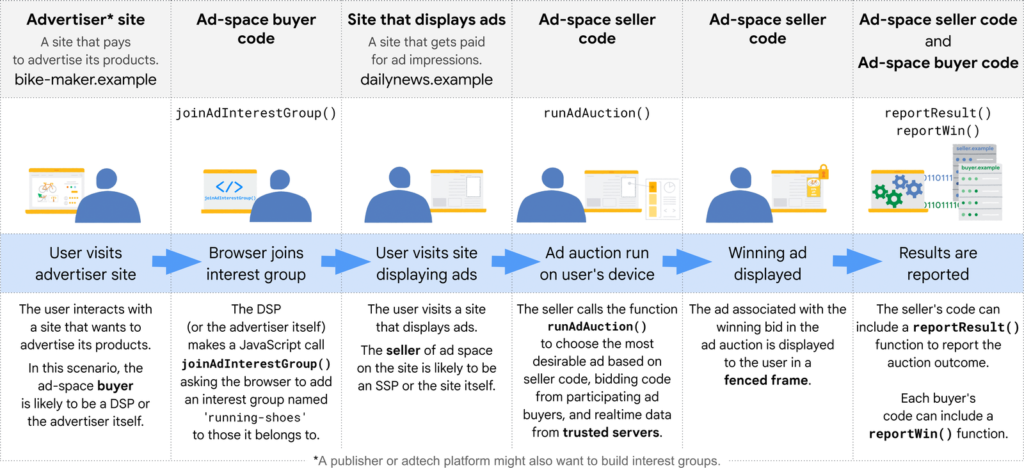Last week Google dropped FLoC (Federated Learning of Cohorts) - a controversial technology Google planned as part of the Privacy Sandbox initiative. FLoC was supposed to give advertisers the means of targeting ads without exposing details on individual users by clustering them into groups based on their browsing activity.
But FLoC triggered powerful opposition from privacy experts. Bennett Cyphers of the Electronic Frontier Foundation insisted that FLoC was "potentially the most harmful" solution for killing the third-party cookie and a "terrible idea:"
"FLoC is meant to be a new way to make your browser do the profiling that third-party trackers used to do themselves: in this case, boiling down your recent browsing activity into a behavioral label, and then sharing it with websites and advertisers," he wrote back in March 2021. "The technology will avoid the privacy risks of third-party cookies, but it will create new ones in the process. It may also exacerbate many of the worst non-privacy problems with behavioral ads, including discrimination and predatory targeting," Cyphers added.
Google’s FLoC Is a Terrible Idea by Bennet Cyphers via Electronic Frontier Foundation
Now, instead of FLoC, Google is pushing forward the Topics targetting and FLEDGE for retargeting.
The Topics API will analyze the users' browsing history and patterns to cluster their interests into interest-based categories to help sites serve relevant ads. For example, the initial advertising taxonomy related to real estate topics may include Real Estate, Real Estate/Lots & Land, and Real Estate/Timeshares & Vacation Properties.
The browser collects a few of the most frequent topics associated with the websites a user visited within a week then deletes that information after three weeks.
Google initially proposed a limited set of 350 topics on a human-curated, publicly visible list. The number was set to reduce the risk of fingerprinting. Also, Google said that Chrome would maintain a topics list that does not include sensitive categories like race, sexual orientation, religion, etc.
The main advantages of the Topics API over FLoC include:
In other words, users will see the topics and remove any they do not like or disable them in Chrome Settings.
Although not yet perfect, the Topics API could be a step toward improved user privacy on the web.
FLEDGE stands for First Locally-Executed Decision over Groups Experiment - implemented for the first time in Chromium within the TURTLEDOVE family of Privacy Sandbox proposals. FLEDGE uses interest groups to enable sites to display ads relevant to their users:

Google will open FLEDGE for testing during the first half of 2022. A FLEDGE demo is already available online, and developers can already implement the API to try FLEDGE and get a clear overview of the trial's goals and what features are proposed for support.
FLEDGE and Topics are currently just experiments, and you can expect them to evolve over the course of the year. There are also chances that Google will replace them with other solutions, as happened to FLoC. So, follow the news to learn about the latest developments in time.